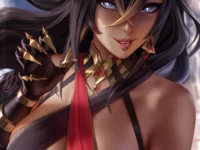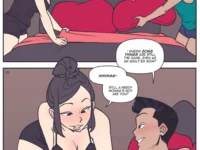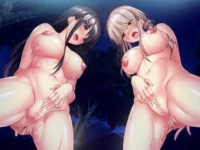Ver wonder egg priority frill








In its unquestionably strangest episode to date, Wonder Egg Priority digs into the past lives of the once fleshy Accas and throws a Hail Mary full of additional thematic spaghetti at the wall.
Frill was designed by Acca and Ura-Acca to feature traits a father would want to see in their daughter. Frill is cheerful and clever by design, showing intelligence significantly higher than that of the average fourteen year old. She also has a sense of humour, and is often seen laughing as a result of practical jokes or general silliness. Acca and Ura-Acca intentionally designed her to have flaws as well, giving her the capacity to express certain negative emotions, such as selfishness. Frill is shown to be playful around Acca and Ura-Acca, viewing the three of them as a family. Frill’s behavior is dictated, and in some ways limited, by these preprogrammed traits.
Frill’s true nature however, proves to be far more sinister. She is shown to become easily jealous when anyone threatens to take attention away from her, or be superior to her in any way, growing to even despise these people. She seems to care little about people who are not her two creators. Frill seems to lack the ability to properly develop empathy. Her obsessive and envious nature culminates when Acca and Ura-Acca both begin to turn their attention away from her, causing her to resort to murder. Following this, Frill’s lack of empathy is fully displayed, showing very little, if any, remorse for her actions. After this, her creators call her a monster, and stop treating as if she were a human. This seems to confuse Frill, as she still seeks affection from her creators despite their disdain towards her.
In a series that has so far thrived in the surreal abstraction of its dream worlds, this episode straddles the line between straightforward origin story and metaphor. Revelations about Neiru and Plati in the back half of the season have done the work to make this story about lab-grown children and rogue AIs “believable,” but nonetheless, we’re primed to think about it in a less literal sense as well. This is also aided by the manner of its delivery. While the context gives us little reason to believe that Ura-Acca is deliberately lying about anything, we have to consider how these events would be colored by his perspective. For instance, how different might the story be if we heard about it from Frill herself? He fast-forwards through the 14 years she spent trapped in their shed. I doubt she had the same luxury. As a result, I’m going to be as uncharitable as possible to the Accas in my interpretation of the events, and I encourage everyone to do the same.
It’s telling that even within the skewed frame of Ura-Acca’s unreliable narration, he and his bespectacled partner come across as the most villainous figures here. They’re not mustache-twirlers, but they’re perfect embodiments of the more benign yet overwhelmingly pervasive net of oppression woven by unwarranted arrogance. It would have been so easy for them to consider that Frill needed the opportunity and space to thrive outside of their cloister, but they never do, neither in the present nor the past. Note how Frill’s response to the wedding is to ask for friends, the implications of which seem to fly straight over Ura-Acca’s head. Familial bonds are important—just not at the cost of all other social interaction. They made Frill for a singular purpose, threatened to take that purpose away from her, and then lashed at her when she lashed out. But even Frill’s murderous acts of rebellion exist within the confines they imposed upon her. She either can’t or won’t harm her fathers, so she instead directs her frustration towards the nearest vulnerable person, and it’s no surprise that this turns out to be other women. Oppressive systems (even one as huge as patriarchy) thrive especially well when oppressors are able to redirect the inevitable ire away from themselves and back within the oppressed community.
This upsetting act of child abuse is followed up by the disquieting speed with which Acca and Ura-Acca’s affections shift to Himari. Instead of reflecting on their mistakes, they wallow in undeserved self-pity until they’re “saved” by what they would probably consider an “improved” version of Frill. Himari, thankfully, is afforded a life bigger and richer than her two weird dads, but I have to emphasize that all of their happy memories with her are haunted by the unseen child trapped in their shed. Tellingly, Frill doesn’t return to their thoughts until they’re met with another tragedy, at which point Ura-Acca’s instinct is to blame anyone but himself.
The Accas can only deal with women when they’re in convenient boxes: daughters, wives, victims, etc. Consider the paternalistic tone they always take with Ai and her friends, but also consider how they treated Frill the moment she stepped out of line (which was to shove her into a literal box). Ura-Acca, similarly, can’t process Himari’s weird behavior on the night before her suicide, so he chooses to brush it off. It’s difficult to parse exactly what’s going on here, especially because it’s being filtered through his recollections, but the implication and visual language point towards the spirit of Frill “possessing” Himari in this moment. Even if that’s not literally what happens, figuratively it tracks. As Himari grows out of being their adorable and perfect daughter, she’s going to take on those qualities of womanhood that the Accas make no effort to understand. Granted, Himari’s suggestive behavior feels like a particularly gross creative choice in a show that’s centered itself so much on the sexual abuse inflicted on young women. There are definitely better, less loaded ways to communicate her maturity, but I wonder if this wasn’t Frill taking another jab at her fathers’ supposedly chaste motivations for creating her. Again, the myth of Pygmalion looms menacingly.
Wonder Egg Priority fans were relieved when a Special was announced, given that the twisted endin…
To summarize quickly, Neiru finally completes her wonder egg mission but is lost in the process, while the other girls find out that their rescued loved ones no longer know them. Ai temporarily removes herself from the wonder egg fighting season of her life, but eventually returns, and decides to continue fighting.
Kotobuki reveals that one of the versions of her created an AI in the image of Airu, Neiru’s sister, suggesting that Neiru herself is artificial, and a jealous Airu stubbed her before committing suicide. Rika decides to give up the egg mission altogether as she doesn’t want to risk her life for a machine. That night, Ai receives a call from "Neiru" but throws her phone away.
The episode ends with Ai, now a transfer student, having drifted apart from everyone associated with the wonder egg season of her life. However, she has kept the photos of herself along with Neiru, Rika and Momoe, and thinks that nothing will make her feel the same.





























